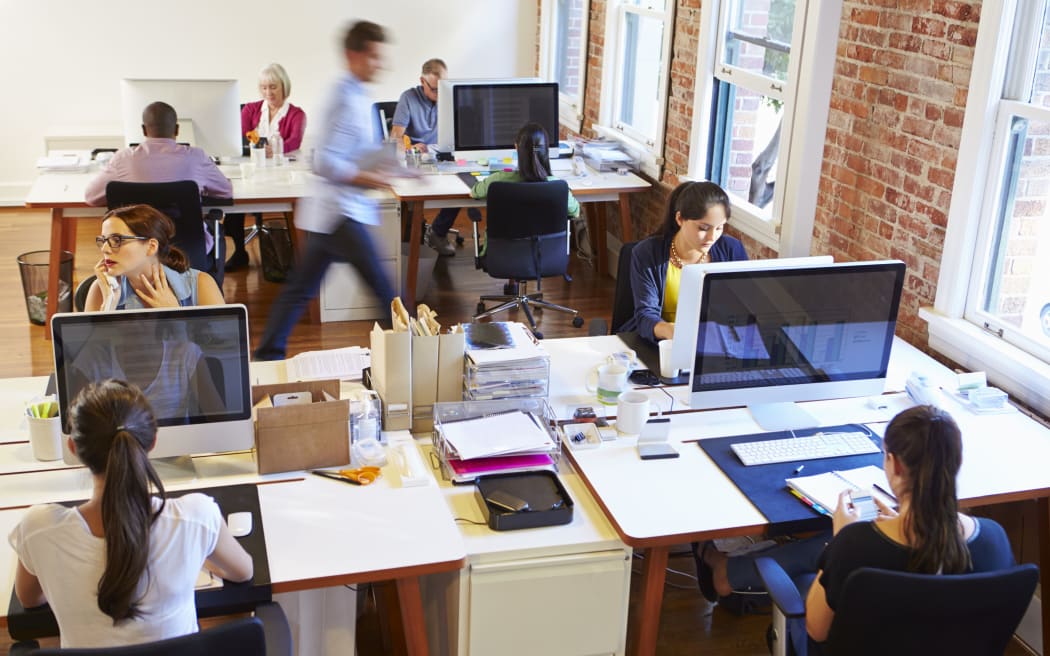In the sum of human history working in an office is a relatively recent development, says Australian writer Gideon Haigh.
In his second book exploring the mores of office life Australian journalist, Haigh asks whether the office as we know it has been irrevocably changed by the pandemic and what role offices as physical spaces will play in the future.

Photo: 123rf
Haigh has been a journalist since 1984, and The Momentous, Uneventful Day is his 40th book – he has also written copiously about cricket.
His The Office: A Hardworking History won the 2013 Douglas Stewart Prize for Non-Fiction.
At the turn of the 20th century not one in 30 people, worked sitting down, he told Kathryn Ryan.
“Work was labour, work was physical, work was mobile, and work was upright.”
Although the office is a relatively recent development, office work is not, he says.
“Affairs like book keeping and letter-writing and functions like that have been with us since ancient times.
“The minute that trade began, the minute that commerce began, some sort of record-keeping function had to develop alongside it.
“Commercial and familial affairs have occurred side-by-side for longer than they’ve been apart.”
So, if the office disappears, or becomes less central to our lives, what will we lose? Haigh believes quite a bit.
“There is a performative quality to the work that we do in offices. We become, if not our best selves, a particular kind of professional self.
“Well-presented, freshly laundered, purposeful even slightly driven.
“We can leave behind the sketchier part of ourselves and become a kind of character in our own workplace drama.”
In fact, we could have worked from home a lot more pre-Covid and yet didn’t, he says.
“And yet we’ve continued to favour working that way, the question is why?”
It serves a need for variety within the day, Haigh says.
“It allows the family to disperse and reunite, it relieves them of that constant cloying mutual dependence.”
Now many of us are working from home more, the down sides become more apparent, he says.
“We’ve all discovered in the course of the last year the home has both the qualities of sanctuary and trap. And the balance of the two is quite delicate.”
And the encroachment on our private lives is also a concern, Haigh says.
“A scattered and atomised workforce is going to find it far harder to resist these encroachments on their privacy than one collected and organised.”
And there are social losses, he says.
“We sometimes feel bad at work, or bored or indifferent, or distracted but we usually look pretty good. We’ve got a purpose, the serotonin is flowing if we’ve got good work to do.
“From the company’s point of view how does a company go about expressing its individuality? How does a company go about impressing on its workers what it embodies and how it might suit them uniquely? What it feels like to be a part of.”
Depersonalising and detaching work from the office could lead to a kind of cultural homogeneity, he says.
“If work is simply to feel the same way everywhere as tasks piped to and fro through a succession of formal and impersonal interactions, sterilised by technology then most companies might begin to feel rather alike”, says Haigh.

